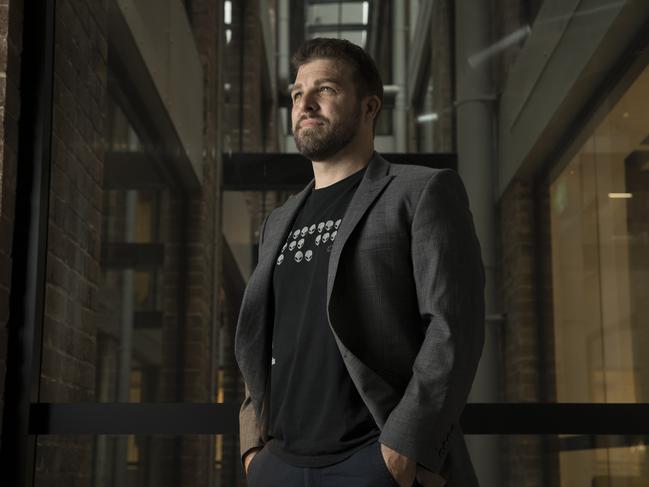Dell, Alienware survey shows how games helped in lockdown
More than 760,000 Australians picked up a gaming controller for the first time during the COVID-19 pandemic, according to newly-released research.

More than 760,000 Australians picked up a gaming controller for the first time during the COVID-19 pandemic, according to newly-released research. They discovered the many social, wellbeing and mental health benefits gaming offers.
Gaming hardware and peripheral manufacturer Alienware conducted the survey of 1034 gamers aged over 18, with respondents from metro and regional Australia, as part of its Alienware Gaming and Social Distancing Survey.
The survey’s finding that half of the population were already playing games comes as no surprise. The gaming industry is bigger than Hollywood, after all. However, there were specific insights contained in the survey which put some numbers on the benefits gaming provides.
The “bringing people together through gaming” aspect is no surprise to most gamers, but what is interesting is the mental health benefits the study reports – in particular, 78 per cent of respondents reported that gaming was a positive outlet for them during the period involving social distancing, while 59 per cent said gaming’s social element helped with their overall wellbeing.
In the survey, the majority of Australians – 57 per cent – said gaming had been a positive outlet for them during stay at home restrictions, with 42 per cent saying gaming had kept their mind active, and 41 per cent saying it had helped relieve stress.
Additionally, 59 per cent of Australians believe gaming can aid with building social connections, with 20 per cent of respondents saying gaming helped them connect with friends while social distancing requirements were in place.
Again, no surprise to anyone who’s part of a World of Warcraft guild, Destiny 2 clan, or active Discord server but there are also more than 760,000 Australians – about 4 per cent of the population of Australia and larger than the population of the Gold Coast – now discovering social connections through gaming for the first time.
“For gamers, the sense of camaraderie is important to sustain relationships with both their online and in-person communities, with two in five (39 per cent) regularly playing online with their real-life friends during social distancing,” says Dell Technologies which conducted the survey.
“This experience was higher among men (47 per cent; cf. women 29 per cent) and younger generations (Gen Z 49 per cent, Millennials 50 per cent; cf. Gen X 28 per cent, Baby Boomers 21 per cent), but overall, three in ten (29 per cent) have set up regular scheduled gaming sessions to help them stay connected while they’ve had to stay apart.”
Jocelyn Brewer, a Sydney-based registered psychologist specialising in the psychology of technology and digital wellbeing, said the survey provided interesting insights, including reinforcing the many benefits gaming could offer participants.

“The games are sometimes the conduit to the connection (with other people) – even pre-lockdown, some of the [residential] communities we’re developing are in high-rises with not a lot of green space, so if you’re a kid growing up there, gaming is your space,” she said.
Ms Brewer said one of the surprising finding was the numbers of parents getting involved in gaming with their children during the pandemic, and the benefits it was bringing to everyone in the process – particularly by opening communications channels between children and parents.
The survey said more than two in five (44 per cent) parents and caregivers were now playing online games with their children because of the stay-home restrictions – and 43 per cent said their children had taught them how to play a video game in that time.
“Co-play is a bridge to the kids, it builds that trust and relationship between parents and kids,” Ms Brewer said.
When parents and children have that relationship – and more of them do now than before the pandemic, Ms Brewer said the result was emotionally healthier families, and children who are more comfortable opening up to their parents about issues they may be facing.
Ms Brewer said one of the other attractive factors for video games in difficult times was they gave players something they could be certain of and be in charge of, regardless of what else was going on.
“Games provide a locus of control – ‘I can’t control COVID, I can’t control my boss – I can control what games I play,” she said.
The rise of video games as a social connectivity exercise across such a broad group of the population means they are bringing distanced people together in surprising ways, too.
“I’d be really interested how many people have started using gaming as their ‘Friday night drinks’ instead of going to the pub,” Ms Brewer said.
Dell Technologies ANZ consumer and small business technologies general manager Ben Jackson said the survey was commissioned as part of the company’s (which owns Alienware) involvement in fostering the gaming community and while some of the results were not a surprise, it was good to have them in black and white and backed by research.

“The survey has shown a few things we already knew but it’s good to reiterate – gaming is mainstream, it’s not gender biased, and it’s across all age groups,” he said.
“The numbers speak for themselves – the (gaming) community has really boomed. In a world of social distancing, (gaming) has really shown how it can build communities and relationships.
“It’s not just building, it’s maintaining relationships – playing with ‘real’ (offline) friends; it’s allowing people to truly connect.”
He pointed to accessible multiplayer games such as Golf With Friends which helped with building that social connection, as well as helping people when they cannot be around each other and interact.
Mr Jackson said while everyone in the industry knew gaming had been mainstream for a while now, and was not gender or age specific, the big element was how quickly people had jumped aboard gaming as a result of the lockdowns and social distancing, and the positive news that meant for the gaming community as a whole.
“I think it reinforces how people’s views about how gaming are changing,” he said. “The community is not only flourishing, but growing at an exponential rate, because of those benefits we saw before.
“It’s exciting to welcome so many new gamers to the local community and to have a fun activity that not only entertains but also supports them during these times.”



To join the conversation, please log in. Don't have an account? Register
Join the conversation, you are commenting as Logout